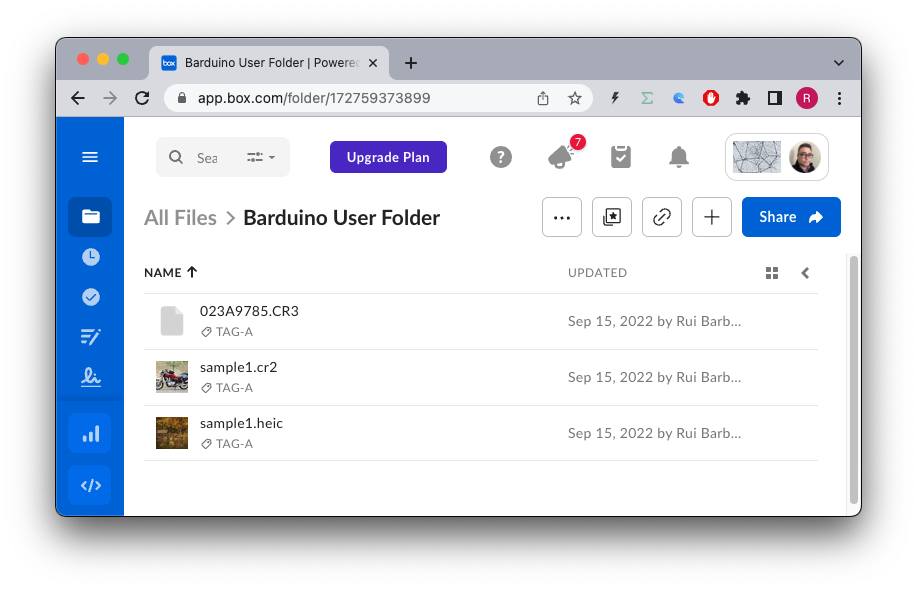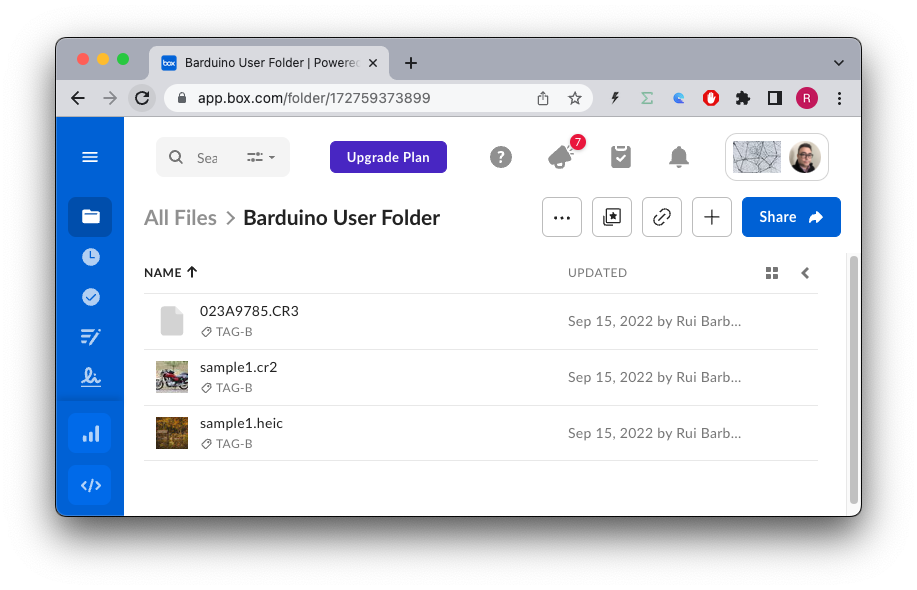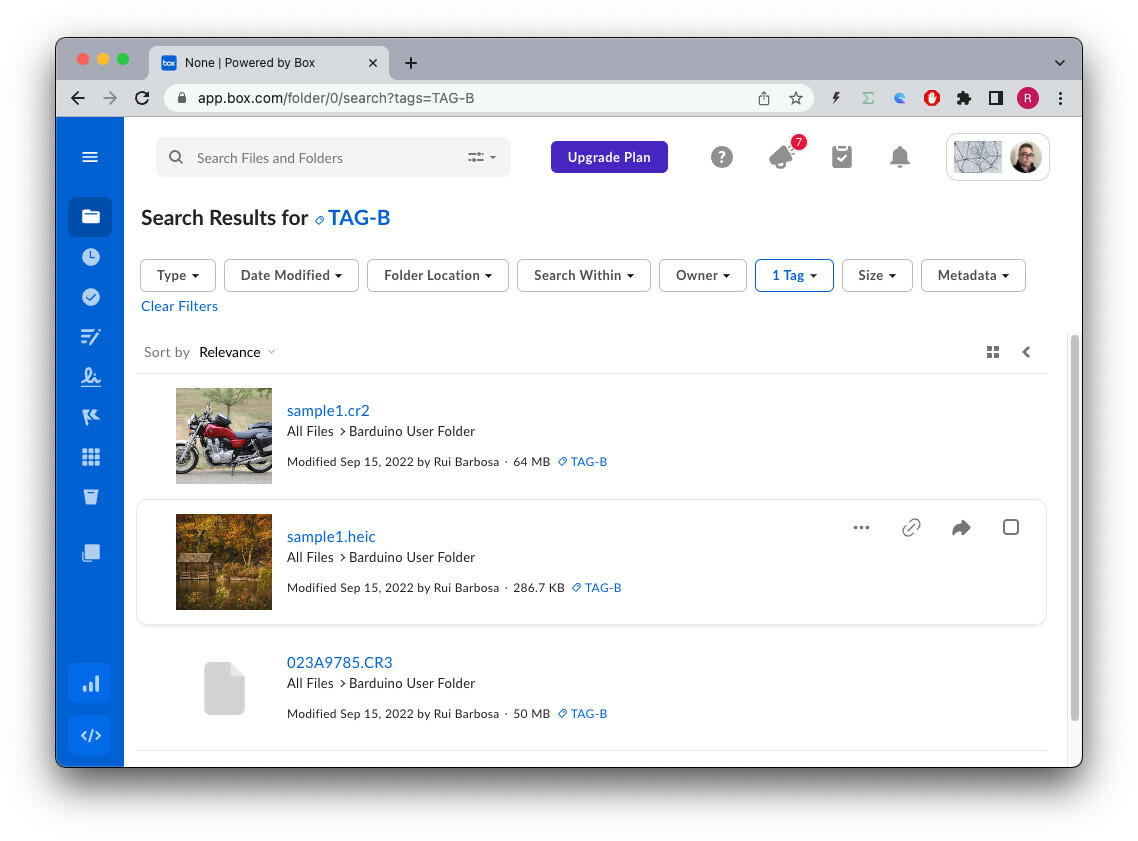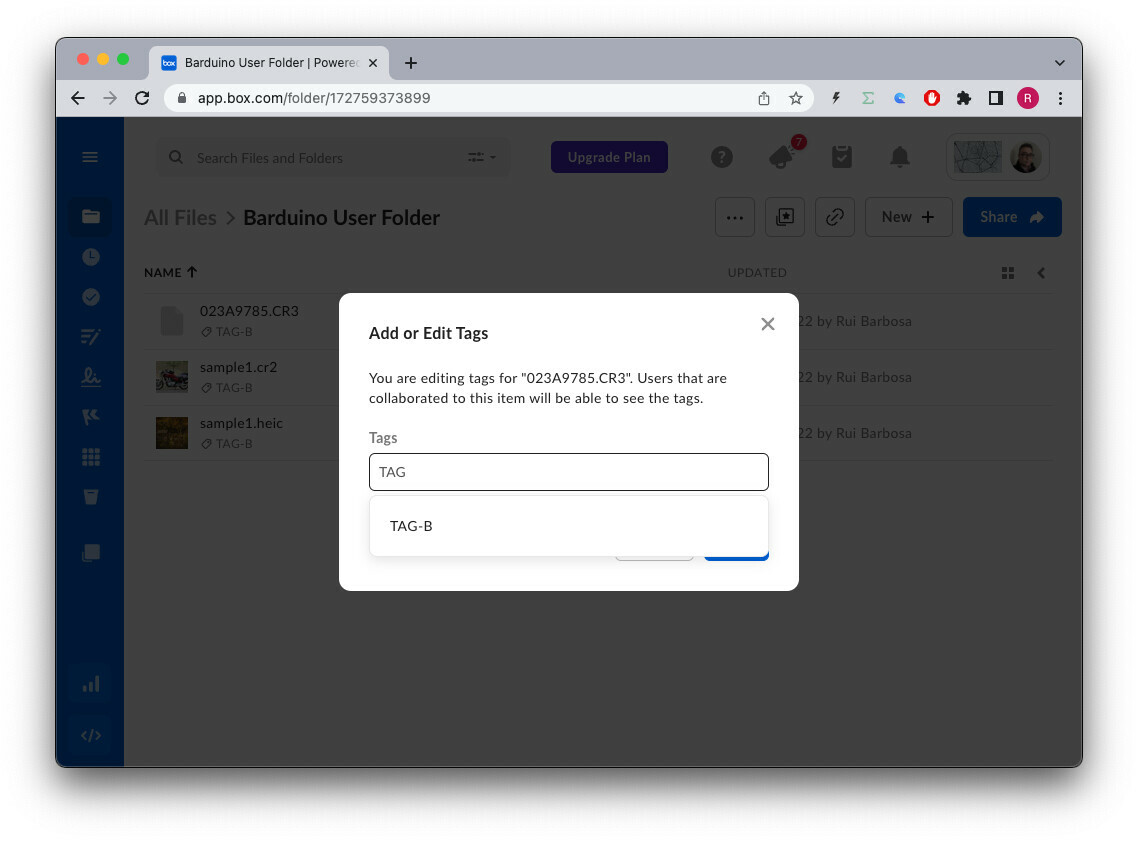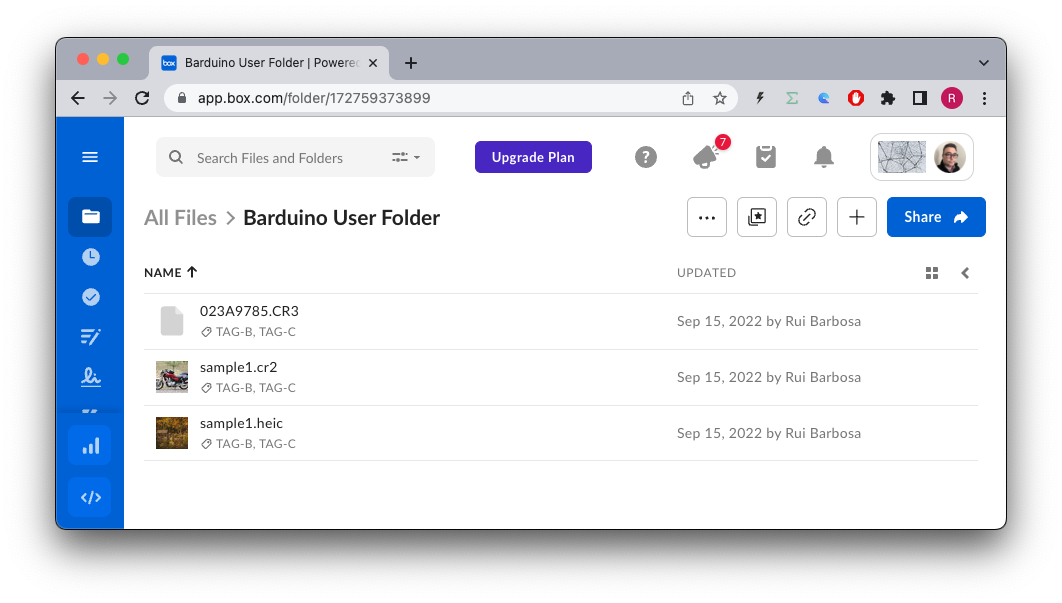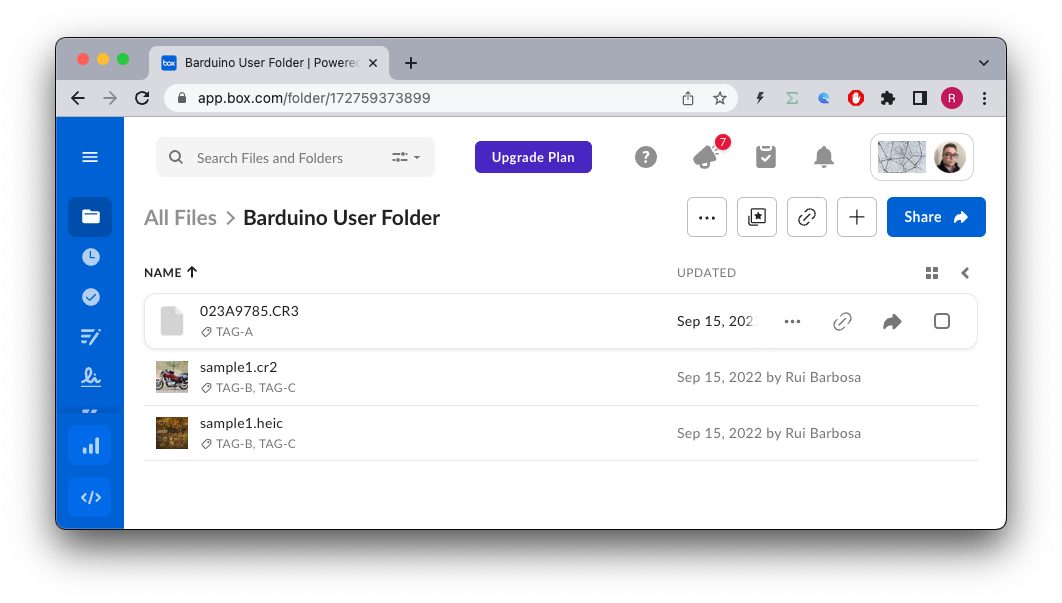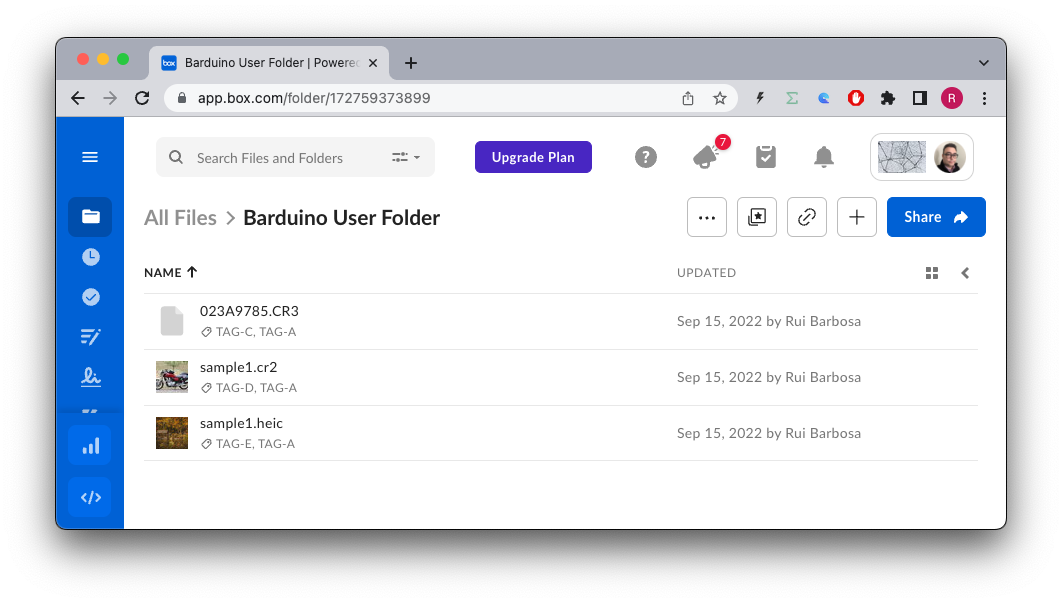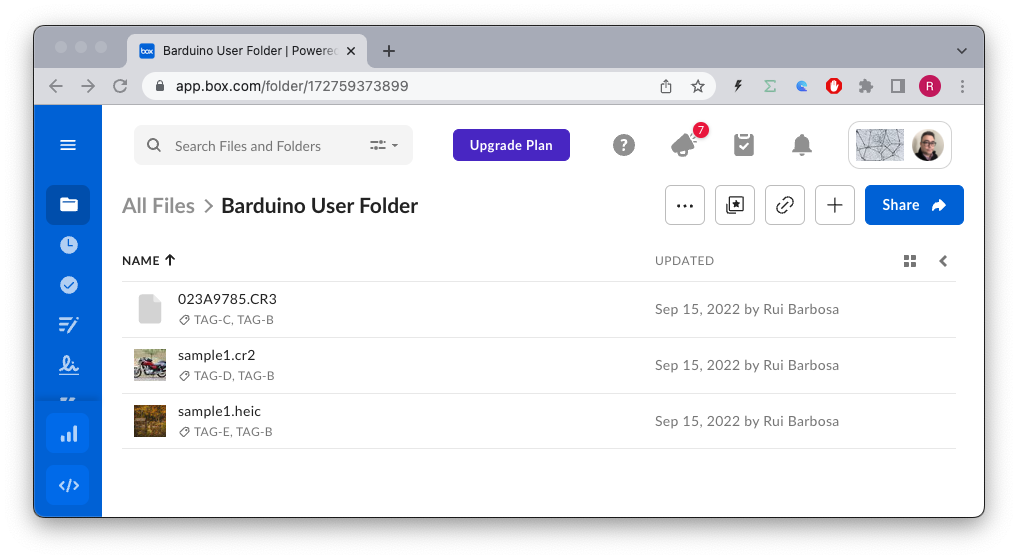Got an interesting question from a developer:
I would like to maintain the tags assigned to Box in bulk, is there any good solution? I was considering a way to use Box CLI, but the description of the CSV template does not mention tags, so I am looking for a solution.
What I want to achieve and the conditions are as follows.
What we want to achieve:
- I want to change the tags assigned to files in bulk with CLI. (e.g. tagA→tagB)
- I want to delete all tags assigned to files in bulk with CLI.
Conditions:
- I am not an admin user. I am an ordinary user of a company.


